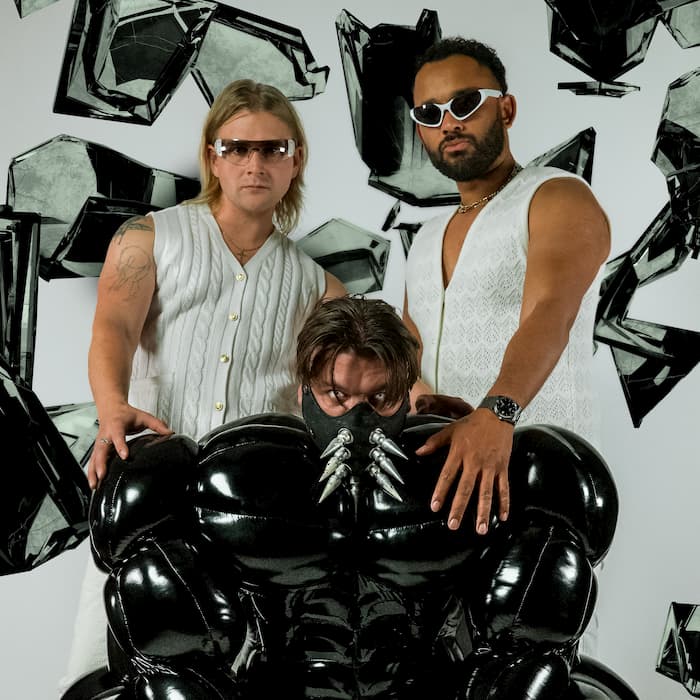Cancelled
This concert is cancelled. Please refund yourself by clicking on the link you received from us via e-mail.
---
HATARI, Iceland’s greatest boyband and state-sponsored premium act, return from the brink of cultural irrelevance with a deep and profound message, but also a new album, and shiny new outfits. Formed somewhere between the financial collapse and the dawn of TikTok, HATARI first hit international radar with a memorably confrontational Eurovision 2019 showing, then followed with the debut album Neyslutrans (2020) — a work described by critics as “apocalyptic techno-pop” and by the band as “a lighthearted exploration of humanity’s impending doom.”
Their Eurovision appearance remains a high point in the ongoing marriage between irony and international entertainment bureaucracy.
Now entering their thirties — the age when most pop stars either sell out or disappear — HATARI have chosen a third path: standardizing the eternal search for meaning into a danceable format. The new era finds the band writing primarily in English, the most capitalist of all languages, to remove the last barrier between their music and the endless algorithmic scroll. Sonically, HATARI has evolved into something sharper and disturbingly danceable — think industrial doom disco meets budget rave aesthetics meets motivational seminar meltdown.
The current lineup features producer/vocalist Klemens Hannigan (aka “The Popstar”), vocalist Davíð Þór Katrínarson (aka “Big D.”), and producer/drummer Einar Stef (aka “Almighty Gimp”) Together, they prepare for the new album and a European tour in February 2026, promising fans not hope, nor comfort, but an entertaining descent into gluttony, decay and deprivation. A future we all look forward to.
Whether you call it performance art, the greatest thing to happen to music since Mozart, industrial techno-pop, or a controlled demolition, HATARI remains Iceland’s loudest contribution to the culture of collapse.
